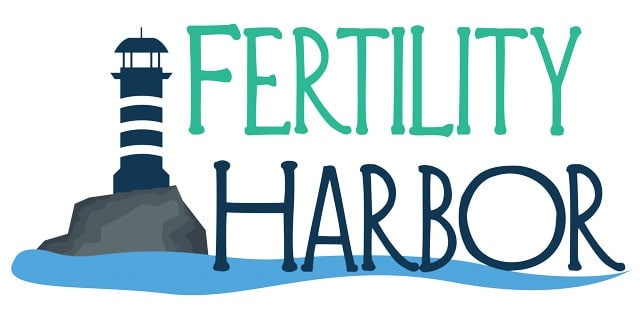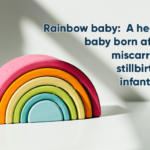This post was reviewed for medical accuracy by Rosalie Gunson, a Certified Registered Nurse Practitioner specializing in fertility care.
If you’re in your 20’s and struggling to conceive, you may have trouble getting friends and even doctors to take your fertility concerns seriously.
So many people assume that “everyone’ is fertile at that age, so all you need to do is think positive and it’ll happen.
It’s true that most healthy couples should be able to conceive within a year of trying. But that doesn’t mean everyone should wait the full year before seeking medical treatment! Many types of fertility problems can strike well before age 30.
If any of these apply to you, you should definitely consider getting a fertility evaluation sooner rather than later:
- Early fertility red flags for women include irregular or absent periods, pelvic pain, prior miscarriage, and signs of a hormonal imbalance (such as hair growth on the face or chest)
- Early fertility red flags for men include erectile dysfunction, swelling in the testicles, and exposure to toxic chemicals.
- Early fertility red flags for either partner include substance abuse, obesity, thyroid disorders, and a history of certain types of cancer, surgery, or sexually transmitted infections.
Why Women’s Fertility Is Usually High in Their 20’s
A major reason that women tend to be fertile in our 20’s is that our eggs are still fresh. Remember that women are born with all the eggs we’ll ever have – we can’t regenerate them.
Egg quality declines gradually over time, which makes it statistically harder to conceive a healthy baby as we age.
In fact, a healthy 40-year-old woman’s chance of conceiving in any given month is only 5%! That’s compared to 20% for women a decade younger.
Statistically speaking, women in their 20’s don’t just have an easier time conceiving compared to older women — they’re also at lower risk of developing complications during their pregnancy.
Women 35 or older are more likely to:
- Conceive fraternal twins (due to increased chance of super-ovulation)
- Miscarry (due to lower egg quality)
- Develop high blood pressure or gestational diabetes
- Deliver a baby before 37 weeks
- Have a baby with a chromosomal abnormality such as Down Syndrome (due to lower egg quality)
Finally, younger people tend to be healthier overall. They’ve simply had less time to develop some sort of health problem. Lots of chronic conditions, including hypertension and Type 2 diabetes among many others, can impact fertility and pregnancy.
Common Causes of Female Infertility Before Age 30
Not everyone is a Fertile Myrtle in their 20’s, though! There are lots of reasons women might have trouble conceiving in their 20’s, including:
- Ovulatory problems, as with PCOS
- Uterine abnormalities
- Blocked Fallopian tubes
- Autoimmune conditions
Irregular cycles and either absent or very heavy periods are big clues that there’s an underlying fertility problem, but many of these other issues are likely to fly under the radar.
For example, many women have no idea they have blocked Fallopian tubes or an unusually-shaped uterus until they get an HSG. I have a whole post about the HSG test here.
Another example would be endometriosis. Endo can sometimes go undiagnosed for a long time, partly because it’s hard to see on an ultrasound.
Common Causes of Male Infertility Before Age 30
It takes two to tango, as they say, and men are just as likely to have fertility problems as women are.
To radically over-simplify the reproductive process, these are the steps of conception from the male partner’s side of things (outside of IVF):
1. Produce healthy sperm
2. Ejaculate sperm
3. Sperm travels through the woman’s body to find the egg
4. One lucky sperm (or two, in the case of fraternal twins!) penetrates the egg
Male fertility problems can crop up at any point of the process:
1. Sperm production is abnormal (low sperm count or complete lack of sperm)
2. Sperm is produced, but it is blocked before it gets into the semen, or sexual problems prevent him from ejaculating
3. Sperm can’t move well enough to reach the egg (poor motility)
4. Sperm can’t penetrate the egg (poor morphology)
One of the more obvious and well-known causes of male infertility is prostate cancer. You may be thinking to yourself, “OK, but almost nobody my age gets prostate cancer!”
It’s true that some causes of male-factor infertility are much more common in older men. (Prostate cancer is usually diagnosed in men over 65.)
But sexually-transmitted infections, substance abuse (including long-term steroid use), and even depression can also affect men’s fertility, and men in their 20’s are hardly immune from those!
By definition, congenital or genetic fertility problems can affect people of any age.
Why Infertility in Your 20’s Can Be Isolating
When you’re having trouble getting pregnant in your 20s, it’s easy to feel that nobody really understands what you’re going through.
You may feel as though everyone else is getting pregnant or everyone else is trying desperately NOT to get pregnant.
Everyone your age is having babies!
Many cultures and religious traditions encourage getting married young and having children right away. Large families may even be seen as divine blessings or rewards for living a righteous life.
Infertility in this context can be especially painful and heart-wrenching, because it suggests some kind of moral failure.
Rest assured, you are NOT being punished for some mysterious sin! You are loved and whole.
Everyone your age is avoiding pregnancy like it’s a disease!
On the flip side, you may be surrounded by people doing everything they can NOT to get pregnant. They’re just in a different stage of life than you are, and that’s OK.
But it can still be isolating, because your friends may struggle to empathize with you. They may even make insensitive comments about how getting pregnant must be an accident or a mistake.
Even when people try to be supportive, they may offer less-than-helpful (and sometimes contradictory) advice…
Having trouble getting pregnant or staying pregnant? Do yoga! Try essential oils! Cut out gluten! Cut out sugar! Cut out dairy! Distract yourself! Stay focused! Have sex more often! Have sex less often! Stick with the missionary position! Try this crazy position that requires you to have Cirque du Soleil levels of flexibility!
Ugh. Women in their 20’s are prime targets for these sorts of tips, because people tend to assume they can’t have a real fertility problem.
Why Fertility Treatment in Your 20’s Can Be Less Daunting Than It May Seem
Even people who don’t know much about fertility treatment have probably heard that IVF is expensive and invasive.
Here’s the thing, though: Most fertility treatment is much simpler than IVF.
The majority of appointments for fertility evaluation and treatment are actually for testing. That includes lab work, ultrasounds, HSGs, and semen analysis.
That’s actually great news, because even insurance plans that don’t cover “infertility treatment” probably cover diagnostic testing.
As I explain in my post How Much Does an IUI Cost Without Insurance, an IUI isn’t super expensive in the grand scheme of things. And hey, timed intercourse is free!
So don’t put yourself through month after month of negative pregnancy tests when you suspect you have a fertility issue. Get it checked out now, while your odds of success with relatively easy treatments are so good!
“The thing I hear most from patients after seeing an RE is, ‘I wish I had not waited so long!'” – Rosalie Gunson, RN
Getting a Referral to a Fertility Specialist
Your primary care physician (PCP) is a great place to start, but you will likely need to see an ob/gyn or a reproductive endocrinologist (RE) for a fertility workup.
(Confused about the different providers you might see on your fertility journey? Check out my post Can Your PCP Prescribe Clomid (and Other Fertility Meds)? for more.)
So what should you do if you want to see a fertility specialist, but your doctor keeps brushing you off because of your age?
You should definitely check with your insurance company, but you may not actually need a referral to see an RE!
Lots of fertility clinics will see patients without a referral and without waiting the customary year (for those under 35). Doesn’t hurt to ask!
Conclusion
If you’re ready to start a family in your 20’s, you have time on your side. But don’t let that stop you from getting a fertility workup if you think you need one!




 I’m Jenn! Here I am with my beautiful twin boys. My pregnancy was possible thanks to fertility treatment for PCOS.
I’m Jenn! Here I am with my beautiful twin boys. My pregnancy was possible thanks to fertility treatment for PCOS.


